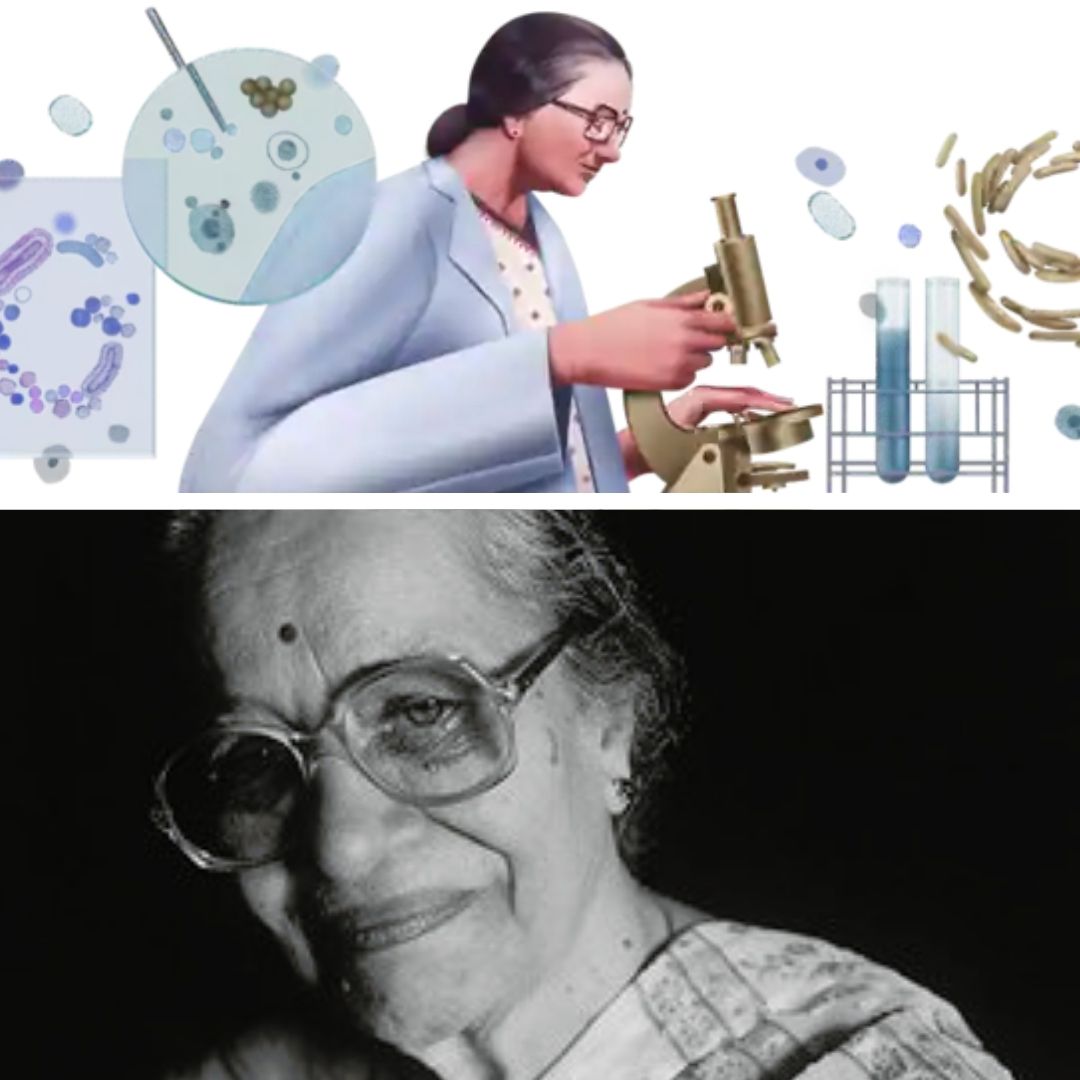
Image Credits: Wikipedia, Hindustan Times
All You Need To Know About Dr Kamal Ranadive And Why Google Is Celebrating Her 104th Birth Anniversary
Writer: Tashafi Nazir
For most people, journalism sounds hectic and chaotic. For her, it's a passion she has been chasing for years. With an extensive media background, Tashafi believes in putting efforts on presenting a simple incident in the most interesting way.
India, 8 Nov 2021 11:01 AM GMT
Editor : Palak Agrawal |
Palak a journalism graduate believes in simplifying the complicated and writing about the extraordinary lives of ordinary people. She calls herself a " hodophile" or in layman words- a person who loves to travel.
Creatives : Tashafi Nazir
For most people, journalism sounds hectic and chaotic. For her, it's a passion she has been chasing for years. With an extensive media background, Tashafi believes in putting efforts on presenting a simple incident in the most interesting way.
The Indian cell biologist is best known for her significant contribution to cancer research and lifetime devotion to creating a more equitable society with the help of science and education.
On Monday, November 8, Google dedicated a doodle to renowned Indian cell biologist Dr Kamal Ranadive to celebrate her 104th birth anniversary. The scientist is best known for her significant contribution to cancer research and lifetime devotion to creating a more equitable society with the help of science and education.
The Google Doodle, created by India-based guest artist Ibrahim Rayintakath, shows Dr. Ranadive with a microscope.
Who Was Dr Kamal Ranadive?
Dr Kamal Samarath, popularly known as Dr Kamal Ranadive, was born in Pune in 1917. Her family encouraged her to opt for medical education, but Ranadive was more interested in Biology.
In 1949, she received a doctorate in cytology, while working as a researcher in the Indian Cancer Research Center (ICRC). She returned to Bombay (now Mumbai) after completing her fellowship at Johns Hopkins University in Baltimore, Maryland, USA. Later, she established India's first culture laboratory at ICRC Mumbai.
As the director of the ICRC and a pioneer in animal modelling of cancer development, Ranadive was among the first researchers in the country to propose a link between breast cancer and heredity and identify these links among cancers and certain viruses.
The Indian cell biologist studied Mycobacterium leprae, the bacterium that causes leprosy, and helped develop a vaccine for it. In 1973, Dr. Ranadive and her 11 other colleagues founded the Indian Women Scientists' Association (IWSA) to support women in scientific fields.
"Ranadive also encouraged students and Indian scholars abroad to return to their own country and use their knowledge to work for their communities. After retiring in 1989, the scientist worked in rural communities in Maharashtra, training women as healthcare workers, providing health and nutrition education. The IWSA has 11 chapters in India and provides scholarships and childcare options for women in science," wrote Google.
Also Read: Chennai School Maintains Caste-Based Attendance For 'Administrative Purpose', Faces Action
 All section
All section














